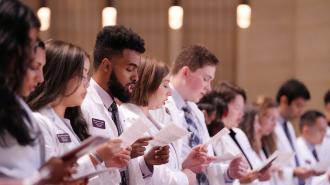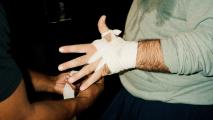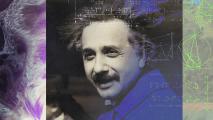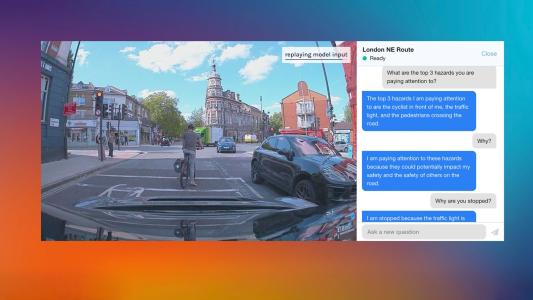UT med students can now get a dual degree in AI
To prepare tomorrow’s doctors to work with artificial intelligence (AI) tech, the University of Texas at San Antonio (UTSA) has launched what it says is the US’s first dual degree in medicine and AI.
Dr. AI: AIs are already helping doctors diagnose diseases, choose treatments, and operate on patients, and their role in healthcare is only expected to increase, which means tomorrow’s doctors need to be well-versed in how AIs work (and don’t work).
However, med schools have been slow to integrate AI into their curriculums.
“Medical students don’t know about this stuff, and they need to see it as basic as pharmacology and physiology,” Jim Woolliscroft, former dean of the University of Michigan Medical School, told STAT. “Already, machine learning algorithms and more generally AI are essentially ubiquitous.”
“Our students … will be shaping the future of healthcare for all.”
Ronald Rodriguez
Machines for humans: UTSA is now offering a dual degree in medicine and AI to provide its grads with the skills to not only use today’s AI but also help develop tomorrow’s systems.
“Through a combined curriculum of medicine and AI, our graduates will be armed with innovative training as they become future leaders in research, education, academia, industry, and healthcare administration,” said Ronald Rodriguez, director of the new dual degree program. “They will be shaping the future of healthcare for all.”
Students in UTSA’s MD program who have completed at least a year of medical school can apply for the dual degree program. If accepted, they’ll be required to take a year-long absence from med school to complete two semesters of study in AI.
When they finish the entire five-year degree program, they’ll have both an MD from UT Health San Antonio and an MS in AI from UTSA.
Tailored approach: There’s nothing stopping med students from taking time off to get a degree in AI (other than spending yet more time and money on school). But UTSA’s program has specifically designed its AI curriculum around the needs of future doctors.
“We went a little more in depth because we didn’t want to leave any stone unturned as we developed this highly dynamic training program,” Dhireesha Kudithipudi, who led the development of the MS program, told the San Antonio Express-News of the effort.
“We wanted to prepare this with a little bit more rigor from our end in understanding the students’ needs and how we can best offer this to them,” she continued.
“I believe the future of health care will require a physician to navigate the technical and clinical sides of medicine.”
Aaron Fanous
Looking ahead: UTSA introduced the dual degree in medicine and AI as a pilot program for medical students in 2021. Three students are already enrolled, and the first two graduates are expected to walk in the spring of 2024.
“I believe the future of health care will require a physician to navigate the technical and clinical sides of medicine,” said Aaron Fanous, one of the students about to graduate. “While in the program, the experience opened my mind to the many possibilities of bridging the two fields.”
We’d love to hear from you! If you have a comment about this article or if you have a tip for a future Freethink story, please email us at [email protected].






